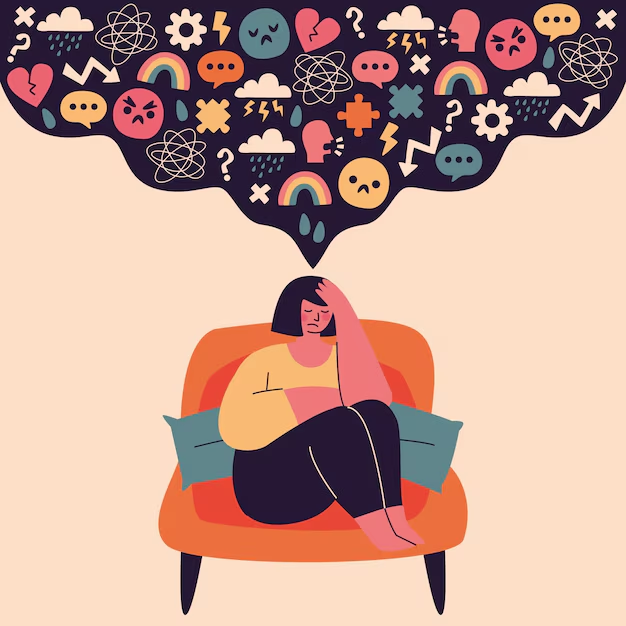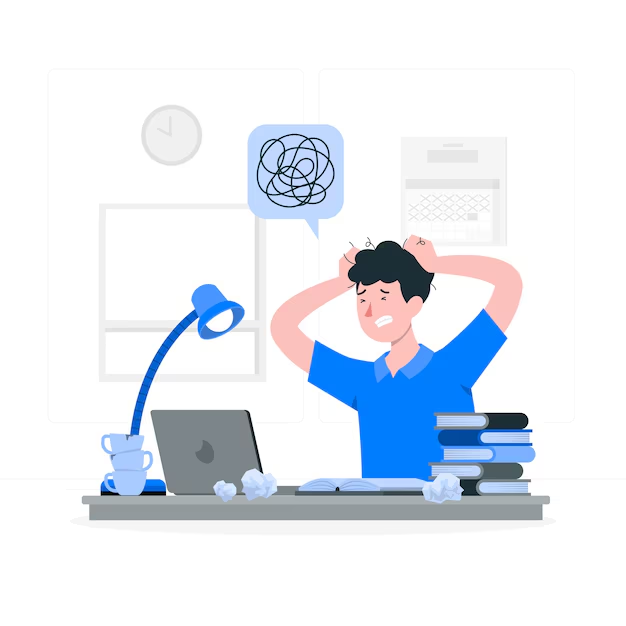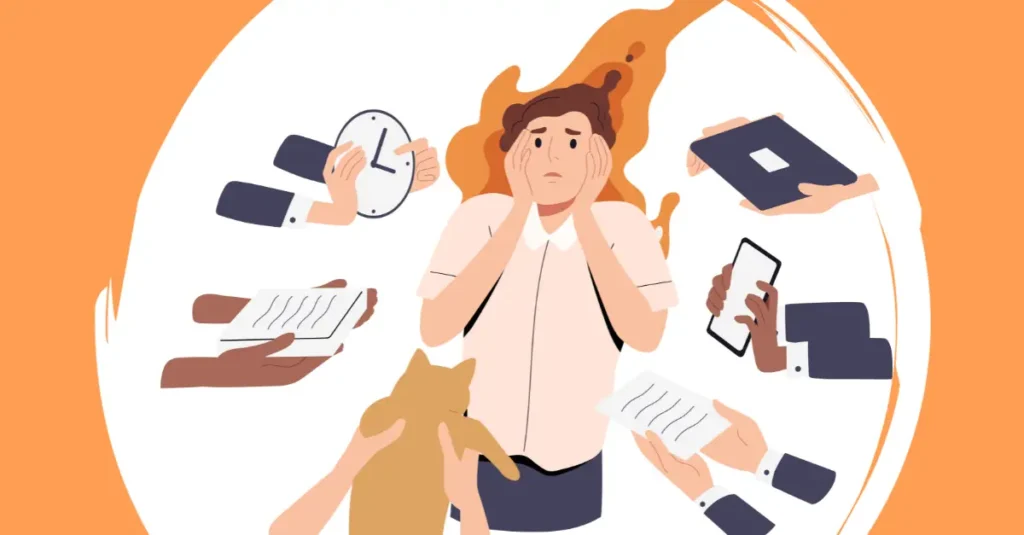Introduction
In today’s digital age, social media has become an integral part of everyday life. Platforms like Instagram, Twitter, Facebook, and TikTok allow us to stay connected with friends, share experiences, and express ourselves. However, as it use continues to rise, so do concerns about its effects on mental health. While it offers many benefits, it also comes with potential risks that can affect emotional well-being, self-esteem, and overall mental health.

Benefits of Social Media on Mental Health
While much of the discourse around social media tends to focus on its negative impact, it is important to recognize its potential benefits as well.
- Social Connection- For many, it provides a sense of connection and belonging. It helps maintain relationships with family and friends, especially for those who live far apart. Social media platforms allow individuals to connect with others who share similar interests, cultures, or experiences, reducing feelings of isolation (Seabrook, Kern, & Rickard, 2016). In fact, studies have shown that people who use social media to enhance their social networks report feeling more socially supported (Kuss & Griffiths, 2017).
- Access to Information and Support- It can be a valuable source of information, advice, and support, particularly for individuals navigating difficult life situations. Online communities dedicated to specific topics—such as mental health, chronic illness, or parenting—can offer support and solidarity that may be difficult to find offline. Furthermore, social media platforms are increasingly used to promote mental health awareness, challenge stigma, and share resources (Naslund et al., 2016).
- Creativity and Self-Expression- It also provides an outlet for creativity and self-expression. Platforms like Instagram and TikTok encourage individuals to showcase their talents, whether through photography, art, music, or writing. For some, this creative expression is therapeutic and boosts feelings of self-worth (Pantic, 2014).
Read More- Burnout
Social Media and Mental Health Risks
While there are clear benefits, excessive or unhealthy use of it can have negative psychological effects.

- Comparison and Low Self-Esteem- One of the most common psychological issues associated with it is the tendency for users to compare themselves to others. Social media platforms often portray an idealized version of life, where users showcase their successes, beauty, and happiness, leading to social comparison. Constant exposure to these “highlight reels” can leave individuals feeling inadequate or dissatisfied with their own lives (Fardouly et al., 2015). This can lead to lower self-esteem, feelings of loneliness, and even depression.
- Fear of Missing Out (FOMO)- The phenomenon of FOMO refers to the anxiety people feel when they perceive that others are having enjoyable experiences that they are missing out on. Social media platforms, with their constant flow of updates, images, and events, amplify this feeling. Users often feel pressured to stay connected and up-to-date, which can create stress and exacerbate feelings of inadequacy (Przybylski et al., 2013). FOMO is linked to increased social anxiety, decreased life satisfaction, and even addictive social media use.
- Cyberbullying and Online Harassment- Social media can also facilitate harmful behaviors such as cyberbullying, online harassment, and trolling. The anonymity and distance provided by the internet make it easier for individuals to engage in hurtful or aggressive behavior without facing immediate consequences. Victims of cyberbullying often experience anxiety, depression, and decreased self-worth (Kowalski & Limber, 2013).
- Addiction and Disrupted Sleep- For some individuals, its use can become addictive. Studies have shown that excessive time spent on social media can lead to a loss of productivity, decreased face-to-face interactions, and disrupted sleep patterns. The constant engagement with social media content can trigger the brain’s reward system, reinforcing the desire to check notifications or scroll through feeds (Turel et al., 2014). This can lead to unhealthy, compulsive use, which in turn may affect mental health.
Read More- Psychological First Aid
Managing Social Media Use
Given the potential psychological impacts of social media, it is important to use these platforms mindfully. Here are some strategies for maintaining a healthy relationship with social media-

- Set Time Limits- One of the easiest ways to manage its use is by setting time limits. Many social media platforms offer built-in tools to track and limit screen time. Limiting time on social media can reduce feelings of overwhelm and prevent excessive comparison and FOMO.
- Curate Your Feed- Be intentional about the accounts you follow. Follow content that inspires and uplifts you, and unfollow or mute accounts that make you feel negative or anxious. Curating your feed can create a more positive and supportive digital environment.
- Practice Digital Detox- Regularly disconnecting from it can help reset your mental health. Designate certain times of the day or week to take a break from social media and focus on offline activities such as exercise, hobbies, or spending time with loved ones. A digital detox can reduce stress, improve sleep, and foster deeper connections with others.
- Be Mindful of Social Comparison- When scrolling through your feed, remind yourself that it often shows a distorted, idealized version of life. People typically post their best moments, which may not accurately reflect the challenges or struggles they face. Practice self-compassion and remember that your worth is not determined by likes, comments, or followers.
- Seek Professional Support- If its use is significantly affecting your mental health, consider talking to a therapist or counselor. They can help you explore the underlying issues contributing to your social media habits and offer strategies for managing stress, anxiety, or depression.
Read More- JOMO
Conclusion
Social media has undeniably transformed the way we connect, communicate, and express ourselves. However, as its influence continues to grow, it’s important to be aware of the potential mental health risks it poses. While social media can be a source of connection, support, and creativity, it can also contribute to comparison, anxiety, and addiction. By managing our social media use thoughtfully and mindfully, we can mitigate its negative effects and harness its potential for positive impact on our mental well-being.
References
Fardouly, J., Diedrichs, P. C., Vartanian, L. R., & Halliwell, E. (2015). Social comparisons on social media: The impact of Facebook on young women’s body image concerns and mood. Body Image, 13, 38-45.
Kowalski, R. M., & Limber, S. P. (2013). Psychological, physical, and academic correlates of cyberbullying and traditional bullying. Journal of Adolescence, 36(3), 1045-1052.
Kuss, D. J., & Griffiths, M. D. (2017). Social networking sites and addiction: Ten lessons learned. International Journal of Environmental Research and Public Health, 14(3), 311.
Naslund, J. A., Aschbrenner, K. A., Marsch, L. A., & McHugo, G. J. (2016). Facebook for supporting a recovery community: A mixed methods study. Journal of Medical Internet Research, 18(2), e300.
Pantic, I. (2014). Online social networking and mental health. Cyberpsychology, Behavior, and Social Networking, 17(10), 652-657.
Przybylski, A. K., Murayama, K., DeHaan, C. R., & Gladwell, V. (2013). Motivational, emotional, and behavioral correlates of fear of missing out. Computers in Human Behavior, 29(4), 1841-1848.
Seabrook, E. M., Kern, M. L., & Rickard, N. S. (2016). Social networking sites, depression, and anxiety: A systematic review. JMIR Mental Health, 3(4), e50.
Turel, O., He, Q., & Xue, G. (2014). The influence of smartphone use on college students’ sleep quality and academic performance. Computers in Human Behavior, 36, 184-190.
Subscribe to PsychUniverse
Get the latest updates and insights.
Join 3,044 other subscribers!
Niwlikar, B. A. (2025, January 21). Impact of Social Media on Mental Health and 5 Easy Ways to Manage It. PsychUniverse. https://psychuniverse.com/social-media/




Pingback: Decision Fatigue and 5 Important Ways to Manage It - PsychUniverse